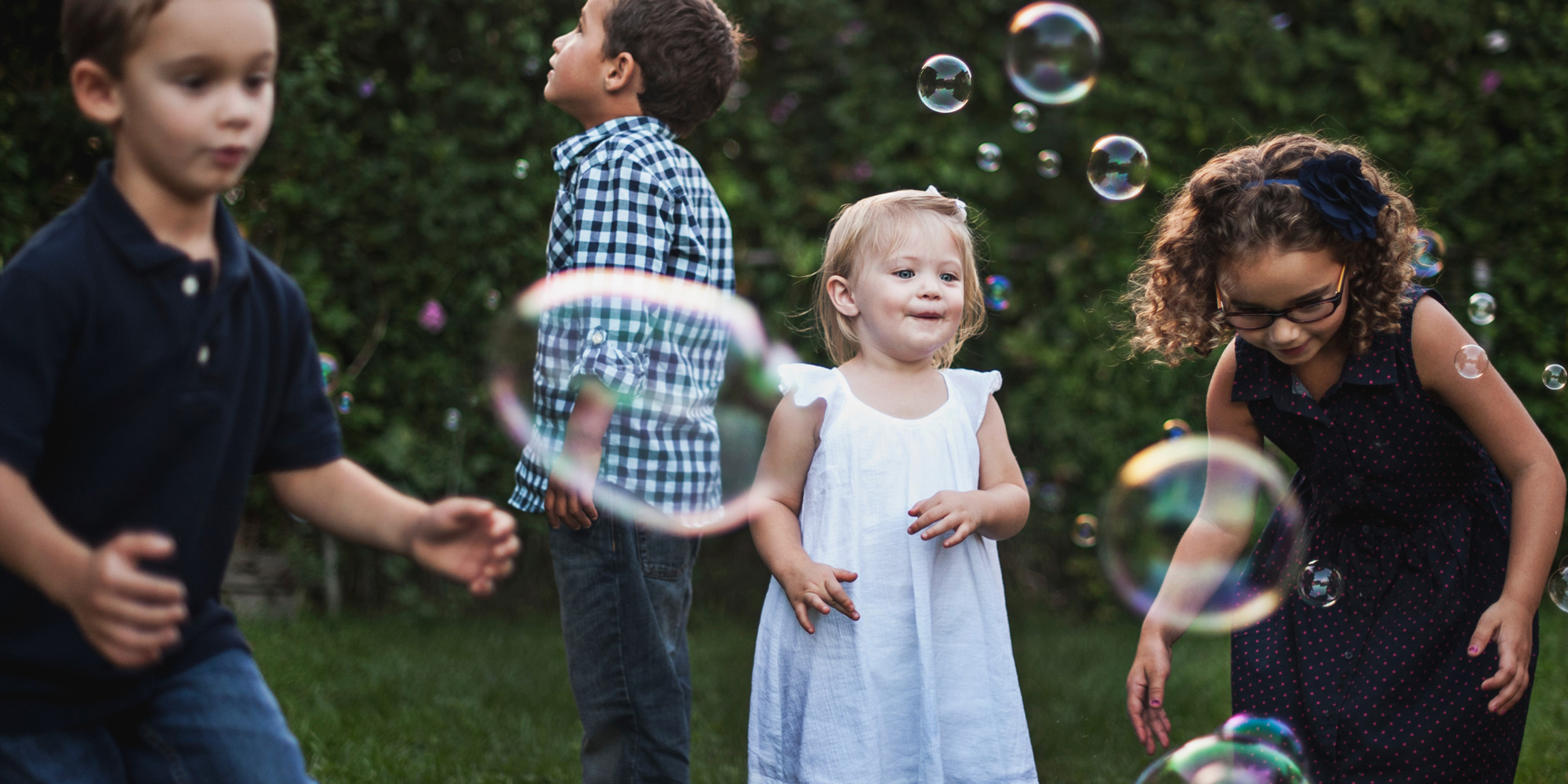Common wisdom dictates that young children thrive on structure; as a result, caregivers may feel pressured to fill up children’s hours with activities. New evidence, however, suggests that unstructured play time is essential for the development of self-regulation skills. In a study published in December 2021, researchers used a larger longitudinal study of Australian children to learn how unstructured play at ages 2-3 and 4-5 would predict the children’s abilities to self-regulate two years later. The answer? Quite a lot.

But first, a couple of definitions: how do you define “play”? Study author Yeshe Colliver, educational consultant and honorary lecturer at Macquarie University School of Education, confirmed that this presented a challenge. “There hasn’t been one consensus definition of play,” he told Early Learning Nation. “Play is difficult to define.” For the purposes of this study, researchers looked to the children involved: “Young children may be more likely to consider an activity as play when they choose its rules.” In other words, true “play” means that kids create the play “structure” themselves—with no grown-up intervention. Whether quiet or active play, by themselves or in a group, the essential factor was that kids made up the rules. “We took care to exclude all of the activities that would have been structured by adults,” said Colliver.
Second, what is self-regulation, and why is it so important? According to Colliver, self-regulation is “controlling impulses and controlling our emotions, and also moderating our emotional expression when we’re expressing emotions to other people.” You can see it when children engage in pretend play with each other: there’s a back and forth, a constant unfolding of compromises that proceed (ideally) as children negotiate the imaginary scenarios they’ve created together. In order to negotiate, they have to “self-inhibit,” to pause and reflect on their co-creators’ ideas instead of demanding their own agenda.
This kind of negotiation can also come up in solitary play, says Colliver: “[One child] might take a bottle and use that to imagine a rocket. In some ways they have to inhibit their perception of what this bottle looks like and use their imagination to then overlay the imagination of that being a rocket. In that sense, they’re involved in a sort of cognitive inhibition. We can imagine that pretend or imaginary play would have some sort of practice of that particular function.”
That said, self-regulation is more likely to be exercised during social play: “When children are playing with others, there are constraints for children to practice those things like emotion regulation and impulse control. So it’s likely that social play is going to have further benefits than just solitary play. But that doesn’t mean that solitary play isn’t an important thing.”
And why is self-regulation so important? Controlling impulses and moderating our emotions are vital skills for people of all ages, and the effects of learning self-regulation early ripple throughout the child’s life. Says Colliver: “Issues like substance abuse, how much wealth the adult has acquired, how many health problems they have, criminal behavior. The self-regulation that a child exhibits in that middle childhood age bracket then predicts a whole suite of these adult outcomes.”
All of which points to the importance of building self-regulation in those early years. Colliver pointed to a 2011 longitudinal study following children from birth to 32 years, which showed that children with poor self-control were more likely as adults to have drug and alcohol problems, money-management issues, poor health and criminal convictions.
Plenty of research has been done on unstructured play and its role in self-regulation. What sets this study apart is its size—over 2200 children were followed over the course of two years—and its use of detailed time-use diaries. “We had very detailed accounts of, every 15 minutes, what the was parent doing. They were prompted to fill that out for a random weekday and a random weekend day. So we got parents giving a very objective measure of how much time children were actually playing.”
The findings were significant: “For every hour that child was engaged in free play more than their peers, those children had a significant increase in their self-regulation two years later.”
Now that we know how important unstructured play is in the role of self-regulation, how do we encourage more free play into a child’s life? It may seem counterintuitive, but caregivers should structure some unstructured time into their children’s days. And for parents, don’t be afraid to get involved. Adult involvement in child’s play doesn’t necessarily have to “spoil” its unstructured nature. The trick, Colliver says, is to allow the child to lead the play.
This is easier said than done, especially when you’re a busy parent or caregiver as Colliver himself is: “I’m very busy so just taking the time to play, to let the child decide everything that’s happening, to let them lead the activity completely can be difficult.” Indeed, letting kids structure their own play can be a challenge all on its own: “That’s particularly true for a segment of our generation of parents with a reputation for being overly anxious about every minute of their child’s life and helicoptering over everything that children do. Time where the child can be in a stress-free and unstructured type of environment is really important. It has given greater credence to that idea for me and has made me try to provide those sorts of experiences more, but it’s not always easy.”
It can, however, reap benefits for years to come. Given the direct link between unstructured play and self-regulation, it’s worth making sure children have the time and space to make their own fun.
Alice Bradley is a Brooklyn-based writer and editor. She has written for numerous magazines and sites, including Salon, Health, Parents and Real Simple, and was a contributing editor to Creative Nonfiction. She co-wrote the humor book “Let’s Panic About Babies!”




